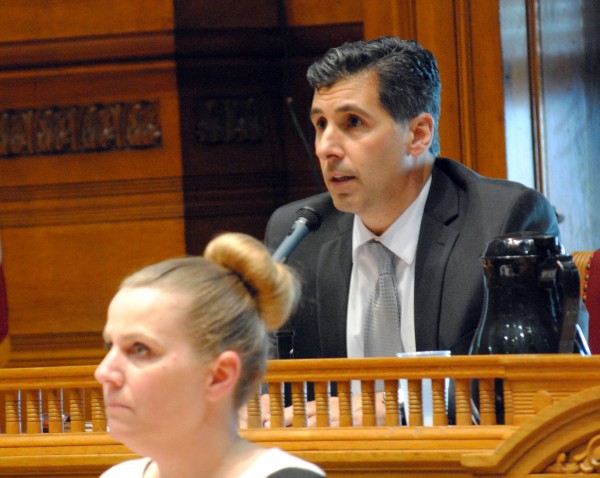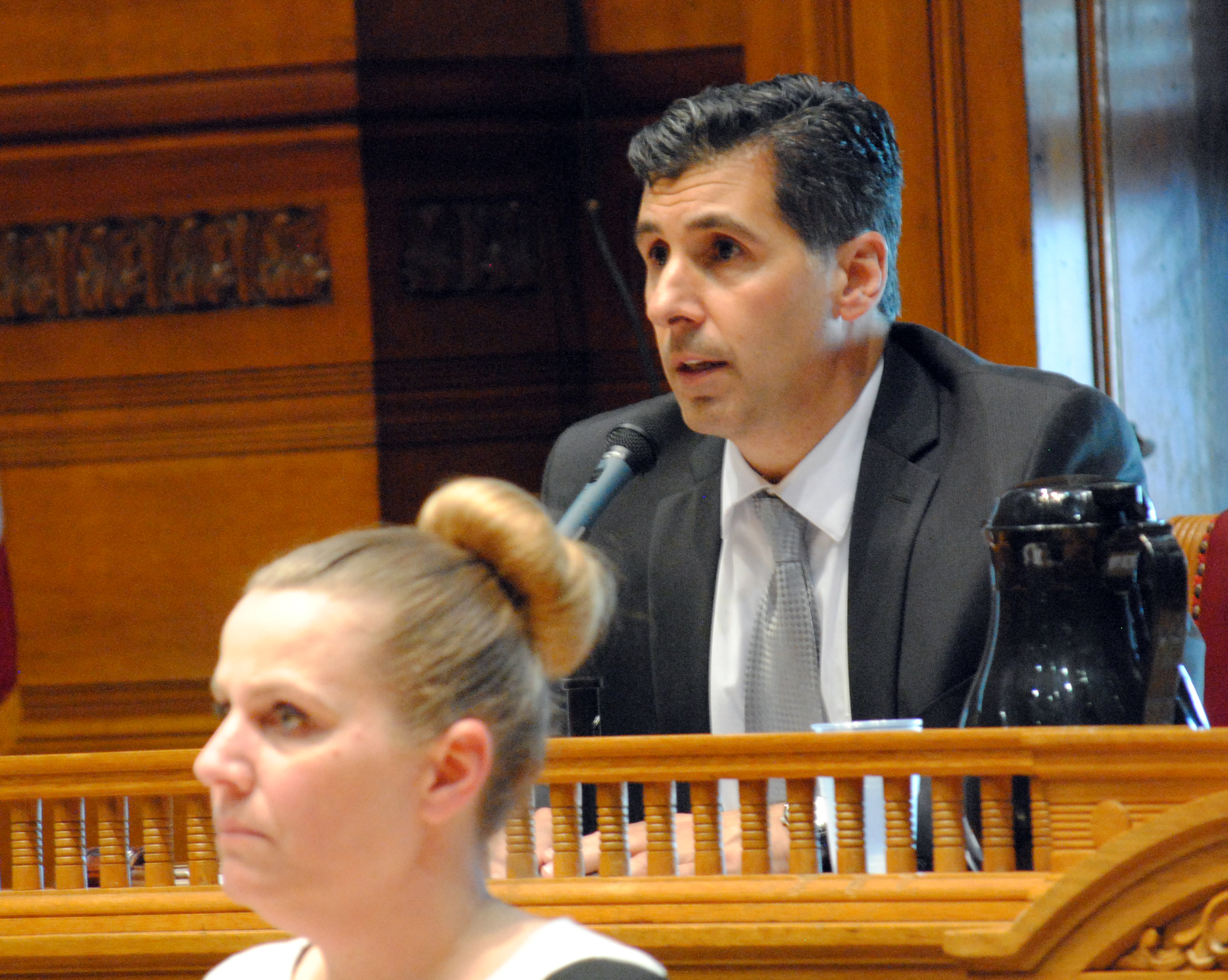
Last year, after the General Assembly stole away the power of cities and towns in Rhode Island to set their own minimum wages, Providence City Councillor John Igliozzi told a packed room of disappointed hotel workers that the city was not prohibited from imposing higher minimum wage standards via tax stabilization agreements (TSAs), which are contracts between cities and private industry, and cannot be interfered with by the General Assembly.
Igliozzi said then that all future TSAs should include strong minimum wage requirements and many other worker protections and rights.
Igliozzi is the chair of the Providence City Council Finance Committee, so one would expect that he would follow up on this proposal, but so far, nothing like this has been incorporated into the new TSAs being cooked up in City Hall and expected to be voted on this week.
When Jesse Strecker, executive director of RI Jobs with Justice, testified before the Finance Committee of the Providence City Council, he presented a short list of proposals to ensure that whatever TSAs were adopted would truly benefit not just the investors and owners of billion dollar corporations but also the working people and families of Providence.
Strecker’s list included the following:
1. Provide good, career track jobs for Providence residents most in need by utilizing apprenticeship programs and community workforce agreements, hiring at least 50% of their workforce from the most economically distressed communities of Providence, with a substantial portion of that workforce made up of people facing barriers to employment such as being a single parent or homeless, or having a criminal record, offering job training programs so local residents are equipped with the skills necessary to perform the available jobs and hiring responsible contractors who do not break employment and civil rights law;
2. Pay workers a living wage of at least $15 per hour, provide health benefits and 12 paid sick days per year, and practice fair scheduling: offering full time work to existing employees before hiring new part time employees, letting workers know their schedule two weeks in advance, and providing one hour’s pay for every day that workers are forced to be ‘on call’;
3. For commercial projects, create a certain number of permanent, full-time jobs, or for housing developments, ensure that 20% of all units are sold or rented at the HUD defined affordable level. Or, contribute at an equivalent level to a “Community Benefits Fund,” overseen and directed by community members providing funding to create affordable housing, rehabilitate abandoned properties, or finance other community projects such as brown field remediation; and
4. Present projected job creation numbers before approval of the project, and provide monthly reporting on hiring, wages and benefits paid, and other critical pieces of information, to an enforcement officer, overseen by a Tax Incentive Review Board comprised of members of the public and appointees of the city council and mayor, to make sure companies are complying with their agreements, and be subject to subsidy recapture if they do not follow through.
Mayor Jorge Elorza submitted an amendment mandating that under the new TSAs, “projects over $10 million will be eligible for a 15-year tax stabilization agreement that will see no taxes in the first year, base land tax only in years 2-4, a 5% property tax in year 5 and then a gradual annual increase for the remainder of the term.”
In return, the “agreements include women and minority business enterprise incentives as well as apprenticeship requirements for construction and use of the City’s First Source requirements to encourage employment for Providence residents.”
But that short paragraph above contains few of the proposals suggested by Strecker.
Supporting the Jobs with Justice proposals are just about every community group and workers’ rights organization in Providence, including RI Building and Construction Trades Council, Direct Action for Rights and Equality (DARE), UNITE HERE Local 217, IUPAT Local 195 DC 11, District 1199 SEIU New England, RI Progressive Democrats of America, Teamsters Local 251, Fuerza Laboral / Power of Workers, Environmental Justice League of RI, RI Carpenters Local 94, Restaurant Opportunities Center RI (ROC United), Mount Hope Neighborhood Association, American Friends Service Committee, Occupy Providence, Olneyville Neighborhood Association (ONA), Fossil Free RI, Providence Youth Student Movement (PrYSM), Prosperity for RI, and the Brown University Warren Alpert Medical School Prison Health Interest Group.






